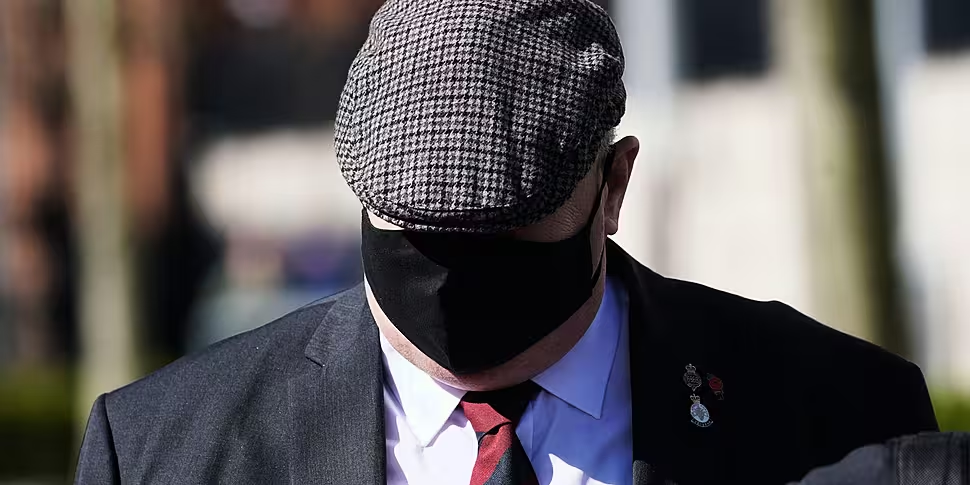A former British soldier has been found guilty of the manslaughter of Aidan McAnespie near a border checkpoint in the North.
David Holden is the first British soldier to be convicted of a historical killing since the 1998 Good Friday Agreement
23-year-old Aidan McAnespie was shot in the back in Aughnacloy, County Tyrone on his to a Gaelic Football match.
Holden, who was 18 at the time and serving with the Grenadier Guards, had admitted shooting him – but claimed he fired by mistake because his hands were wet.
Gross negligent manslaughter
During the non-jury trial at Belfast Crown Court, the now-53-year-old had denied the charge of gross negligent manslaughter.
This morning, trial judge Mr Justice O'Hara said he was satisfied beyond reasonable doubt that the defendant was guilty.
The court ruled that Holden had pointed a machine gun at Mr McAnespie and pulled the trigger, while assuming the gun was not cocked.
“That assumption should not have been made,” he told the court.
"Deliberately false account"
He also said the former soldier had given a "deliberately false account" of what happened.
The judge said: “The question for me is this - just how culpable is the defendant in the circumstances of this case?
“In my judgment, he is beyond any reasonable doubt criminally culpable.”
Justice
Darragh Mackin, the lawyer for Mr McAnespie's family, said: “Since 1988 the family have persevered in trying to seek justice against the British Army and Mr Holden for the manslaughter of Aidan McAnespie.”
“Mr Justice O'Hara found Holden's evidence 'entirely unconvincing', 'incoherent', and described his account as a 'deliberately false account'.
“We welcome this decision which gives all victims' families here hope that the courts remain open to families seeking justice.”
Amnesty
To date, six former soldiers have been charged with historical offences in Northern Ireland but cases against four collapsed and one died while on trial.
Last year, the British Government introduced a bill that would effectively offer an amnesty for crimes committed during the Troubles.
The bill had its second reading in the House of Commons on Wednesday.
It is widely opposed by victims, victims’ groups, the Irish Government and human rights organisations.









